Health
22 health care predictions for 2025 from medical researchers
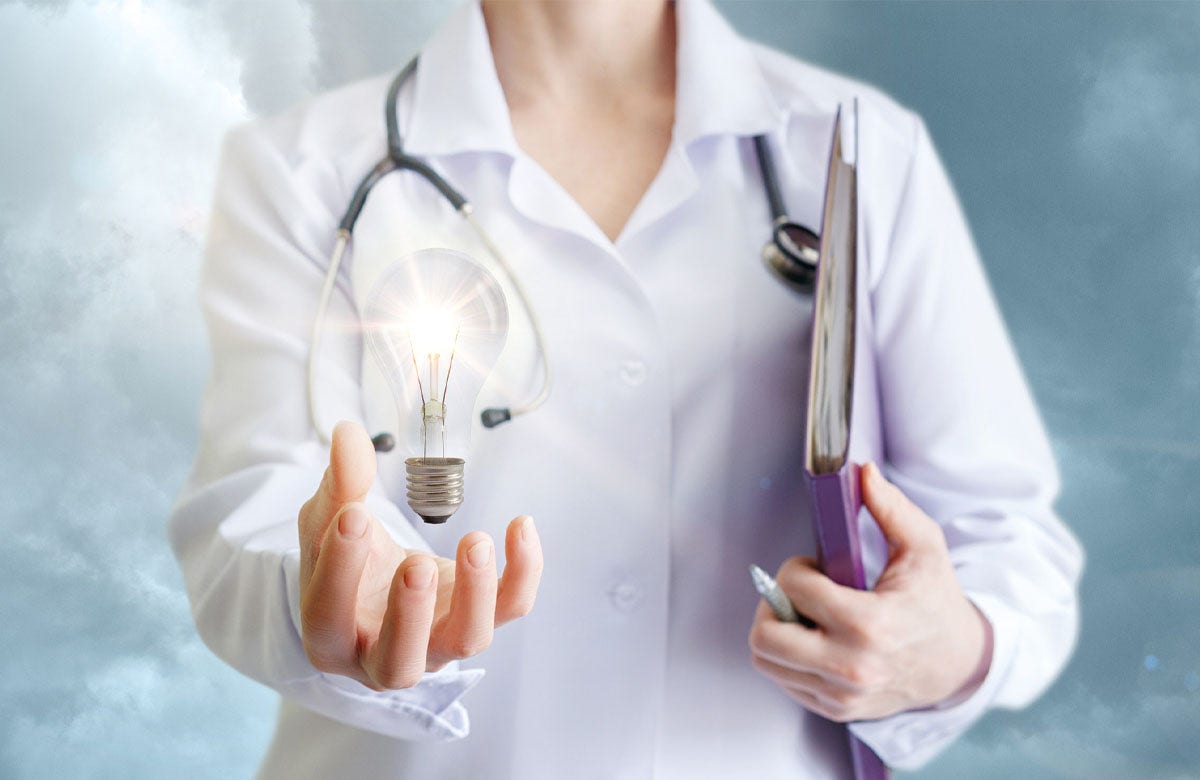
2024 was packed with health care innovations, from a new blood test detecting Alzheimer’s disease to deep brain stimulation reversing paralysis.
Heading into the New Year, medical experts are predicting even more medical advances for 2025.
Researchers from Mass General Brigham, a health care system in Boston, Massachusetts, shared with Fox News Digital some of the scientific developments and breakthroughs they expect to see, which are also published on the hospital’s website.
7 OF GOOGLE’S MOST-SEARCHED HEALTH QUESTIONS IN 2024, WITH EXPERT RESPONSES
5 cancer predictions
1. “I anticipate we are going to see continued breakthroughs and growth in immunotherapy for cancer, particularly with FDA approvals and commercialization of cell therapies for solid tumors. The field is also poised to make great strides in using these technologies for other conditions, like autoimmune diseases.”
Bryan Choi, MD, PhD
Investigator, Department of Neurosurgery
Massachusetts General Hospital
Heading into the New Year, medical experts from Mass General Brigham are predicting many new medical advances for 2025. (iStock)
2. “I predict novel discoveries and innovative strategies for early cancer detection and prevention will dramatically impact patient care in the coming year. With the proven success of immunotherapy for cancer treatment, there is an emerging interest in utilizing the patient’s own immune system for cancer prevention, especially in high-risk populations. This area of research is expanding rapidly and will likely generate actionable targets for investigations in patients.”
Shawn Demehri, MD, PhD
Investigator, Mass General Cancer Center
Massachusetts General Hospital
3. “The current standard for treating patients with clinical stage 2 or 3 triple-negative breast cancer is to administer chemotherapy in addition to immunotherapy prior to surgery. This combination therapy leads to a better response than chemotherapy alone. However, immunotherapy comes with added toxicities that can lead to lifelong complications.”
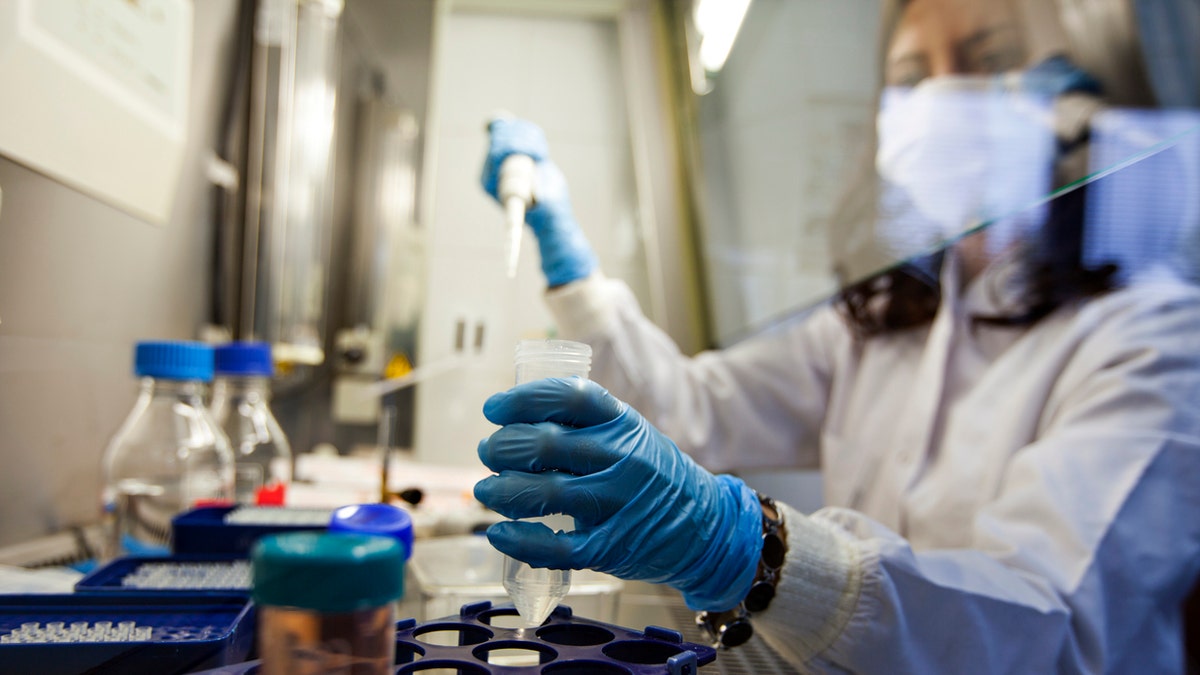
Researchers expect that 2025 will include an “important step in further personalizing breast cancer care and reducing long-term side effects.” (iStock)
“In 2025, I anticipate significant progress will be made in identifying biomarkers in a patient’s peripheral immune system that will help determine which patients require the addition of immunotherapy and those who will do well with chemotherapy alone. This would be an important step in further personalizing breast cancer care and reducing long-term side effects.”
Elizabeth Mittendorf, MD, PhD, MHCM
Investigator, Department of Surgery
Brigham and Women’s Hospital
4. “In basic research, single-cell technologies have been advancing at an accelerated pace. In 2025, I believe we will likely see major breakthroughs in spatial transcriptomics and sub-cellular high-resolution imaging, particularly in the context of embryo development and understanding of cancer progression and resistance.”
Raul Mostoslavsky, PhD
Investigator, Krantz Family Center for Cancer Research
Massachusetts General Hospital
“I predict novel discoveries and innovative strategies for early cancer detection and cancer prevention will dramatically impact patient care.”
5. “I believe we will see a greater focus on the long-term impact of multiple environmental factors on disease states, such as cancer development processes. There is a misconception that many non-hereditary diseases, such as non-hereditary cancer, are the result of short-term risk factor exposure. I think that research in the coming year will shift focus on the long-term impacts of multiple disease-causing factors.”
Shuji Ogino, MD, PhD, MS
Chief of Molecular Pathological Epidemiology Program, Department of Pathology
Brigham and Women’s Hospital
6 neurology predictions
1. “I anticipate we’ll see an uptick in usage of artificial intelligence (AI) to support physicians while they care for patients, streamline workflows, and improve diagnostics and treatments in 2025. We’re also likely to see expanded use of robotics and AI in complex surgeries, particularly for brain and spine procedures.”
E. Antonio Chiocca, MD, PhD, FAANS
Executive Director, Center for Tumors of the Nervous System
Mass General Brigham
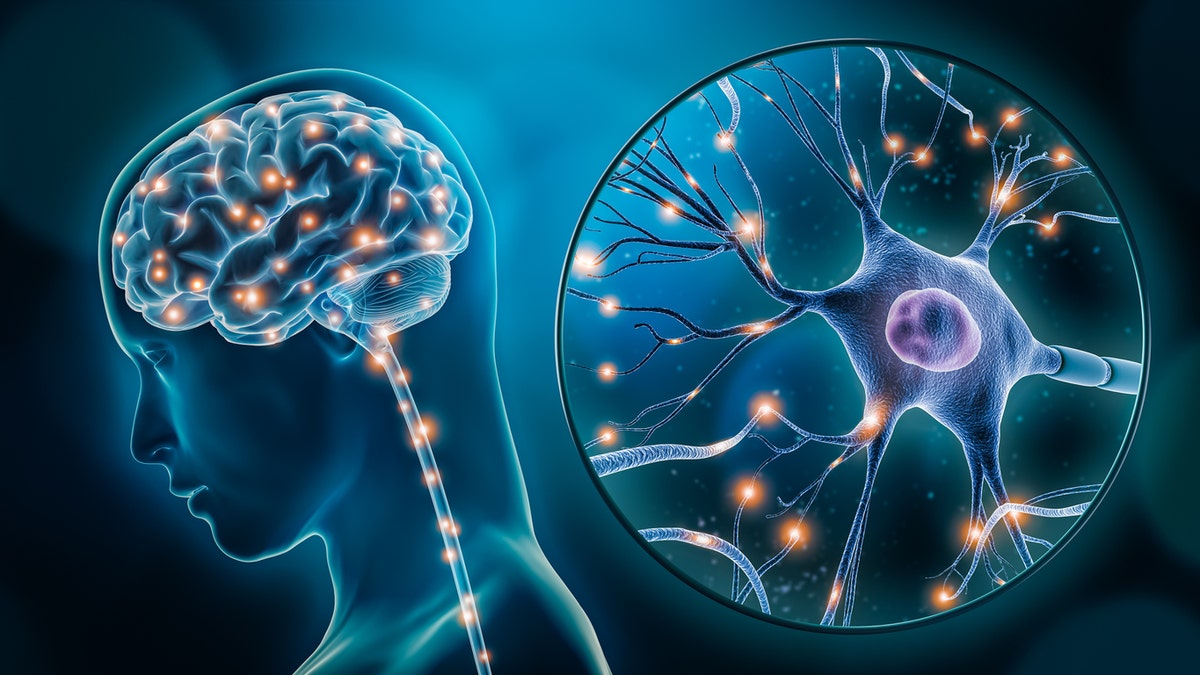
1. “I anticipate we’ll see an uptick in usage of artificial intelligence to support physicians while they care for patients, streamline workflows, and improve diagnostics and treatments in 2025,” one neurologist said. (iStock)
2. “I predict that advances in non-invasive brain stimulation will change how we care for patients with brain disease, including accelerated protocols that improve symptoms in days rather than weeks, personalized protocols that target the most bothersome symptom in each patient, and at-home devices that make brain stimulation accessible to more patients.”
Michael Fox, MD, PhD
Director, Center for Brain Circuit Therapeutics
Brigham and Women’s Hospital
THE YEAR IN CANCER: ADVANCES MADE IN 2024, PREDICTIONS FOR 2025
3. “Advances in focused ultrasound technology offer the potential for non-invasive, targeted, and temporary opening of the blood-brain barrier. This could allow therapies that were previously ineffective — due to their inability to cross the blood-brain barrier to reach their target in the central nervous system — to directly target tissues. I think we will see a breakthrough in this area of research in the next year, enabling treatments for a wide range of brain disorders, including neurological, psychiatric and neurosurgical conditions.”
Alexandra Golby, MD
Investigator, Neurosciences Center
Brigham and Women’s Hospital
4. “Starting in 2025, it will become possible to administer transcranial magnetic stimulation to treat depression over the course of just days instead of weeks, which, aided by pharmacological co-agents, will still lead to a very high remission rate in treatment-resistant patients.”
Andreas Horn, MD, PhD
Director, Center for Brain Circuit Therapeutics
Brigham and Women’s Hospital
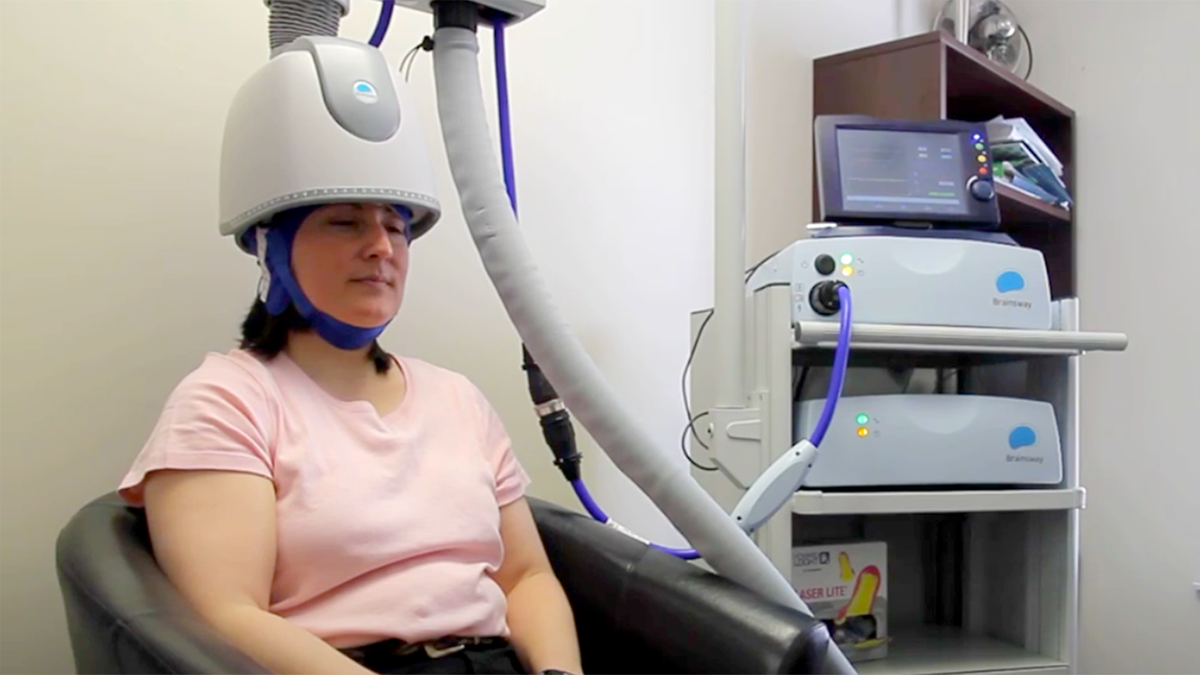
“I predict that advances in non-invasive brain stimulation will change how we care for patients with brain disease,” one doctor said. (BrainsWay)
5. “I predict that the prevention of dementia, stroke and depression will become a cornerstone of patient-directed primary care. In 2024, we saw the publication of several high-impact validation studies of the Brain Care Score (BCS), a tool designed to help people everywhere use the most robust science to guide their daily lifestyle choices and reduce their risk of dementia, stroke and depression by up to 50%. In parallel, we have laid the groundwork to empower people everywhere to use the BCS routinely, and to bring it with them to their next primary care visit with a health care provider.”
Jonathan Rosand, MD, MSc
JP Kistler Endowed Chair in Neurology
Co-Founder, McCance Center for Brain Health
Massachusetts General Hospital
“I envision that in 2025, the discovery of molecular biomarkers will shift the care paradigm to a more proactive approach. “
6. “I foresee advances on several fronts of dementia care as a major theme for health care in 2025. This includes AI-assisted approaches to improve early diagnosis, novel ways of delivering personalized treatments, and advances in care delivery as the Centers for Medicare & Medicaid Services-developed GUIDE (Guiding an Improved Dementia Experience) Model of Care is implemented nationwide. I also predict that caregiving for persons with dementia will gain further recognition as a major element of health care, requiring more resources and attention.”
Ipsit V. Vahia, MD
Investigator, Division of Geriatric Psychiatry
McLean Hospital
5 cardiology predictions
1. “I believe in 2025 we can expect to see the completion of the first large outcomes-focused clinical trial from a group of new medications that target lipoprotein(a), a unique type of ‘bad cholesterol’ that increases a patient’s risk for cardiovascular disease. Up to this point, the treatment paradigm for patients with elevated lipoprotein(a) has been to aggressively modify other risk factors, but we may soon have more targeted treatment options.”
Michael Honigberg, MD, MPP
Investigator, Cardiology Division
Massachusetts General Hospital
STEM CELL THERAPY TO CORRECT HEART FAILURE IN CHILDREN COULD ‘TRANSFORM LIVES’
2. “Cardiac critical care has transformed into its own discipline, but remains largely reactive to treating patients as they become sicker. I envision that in 2025, the discovery of molecular biomarkers will shift the care paradigm to a more proactive approach. Molecular biomarkers may help us identify patients most at risk of disease and start interventions earlier, maybe even preventively.”
Edy Kim, MD, PhD
Investigator, Pulmonary Division
Brigham and Women’s Hospital
3. “I predict that in 2025, we will see significant advancements in women’s health research. In particular, I hope to see major breakthroughs that improve quality of life and cardiovascular health in mid-life/menopausal women, a group that has been historically underappreciated.”
Emily S. Lau, MD, MPH
Investigator, Cardiometabolic Health and Hormones Clinic
Massachusetts General Hospital
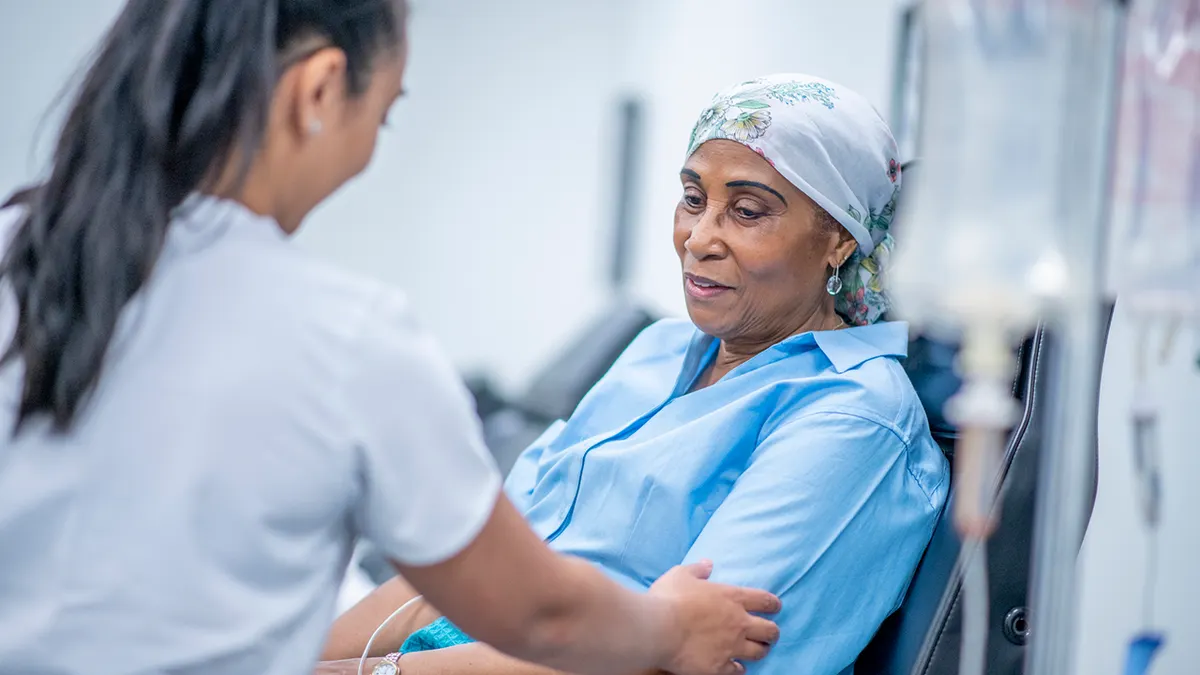
“In 2025, I anticipate significant progress will be made in identifying biomarkers in a patient’s peripheral immune system that will help determine which patients require the addition of immunotherapy and those who will do well with chemotherapy alone,” one doctor said. (iStock)
4. “In 2025, I anticipate we will see the introduction of two intertwined advances. First, the integration of artificial intelligence-facilitated algorithms for the early detection of cardiovascular illness, which will move us closer toward early prevention. We also envision a focus on using genetically informed treatments to reduce the risk of atherosclerotic heart disease, valvular heart disease and heart failure. Together, these important advances will usher in an era of personalized health care in cardiovascular disease.”
Mandeep R. Mehra, MBBS, MSc
Executive Director, Center for Advanced Heart Disease
Brigham and Women’s Hospital
5. “In the coming year, I anticipate a marked increase in focus on cardio-kidney-metabolic health, necessitating new patient-centered models of interdisciplinary care.”
Pradeep Natarajan, MD, MMSc
Director, Preventive Cardiology
Massachusetts General Hospital
6 general scientific predictions
1. “In 2025, I believe we will uncover the answers to remaining questions about nutrient metabolism and why a calorie is not a calorie, thereby improving our understanding of why some people gain weight.”
Caroline Apovian, MD
Co-Director, Center for Weight Management and Wellness
Brigham and Women’s Hospital

“In 2025, I believe we will uncover the answers to remaining questions about nutrient metabolism and why a calorie is not a calorie, thereby improving our understanding of why some people gain weight,” a doctor predicted. (iStock)
2. “In the coming year, I see artificial intelligence being integrated more into health care as a supplement to physician knowledge and intuition. With the amount of biomedical data we are generating, I predict AI tools will improve our ability to interpret and apply the most salient information to individual patients, resulting in a personalized approach to patient care. I also predict that AI will continue to greatly reduce the administrative burden on providers and enable them to spend more time with their patients.”
William Hwang, MD, PhD
Investigator, Center for Systems Biology, Krantz Family Center for Cancer Research, Department of Radiation Oncology
Massachusetts General Hospital
CLICK HERE TO SIGN UP FOR OUR HEALTH NEWSLETTER
3. “I think in 2025, we will see the implementation of generative artificial intelligence language models (i.e., chatbots) for some aspects of routine clinical care, such as the preparation of patient communications, generation of preliminary diagnostic test reports, or summarization of patient medical records.”
Shaan Khurshid, MD, MPH
Investigator, Telemachus and Irene Demoulas Family Foundation Center for Cardiac Arrhythmias
Massachusetts General Hospital
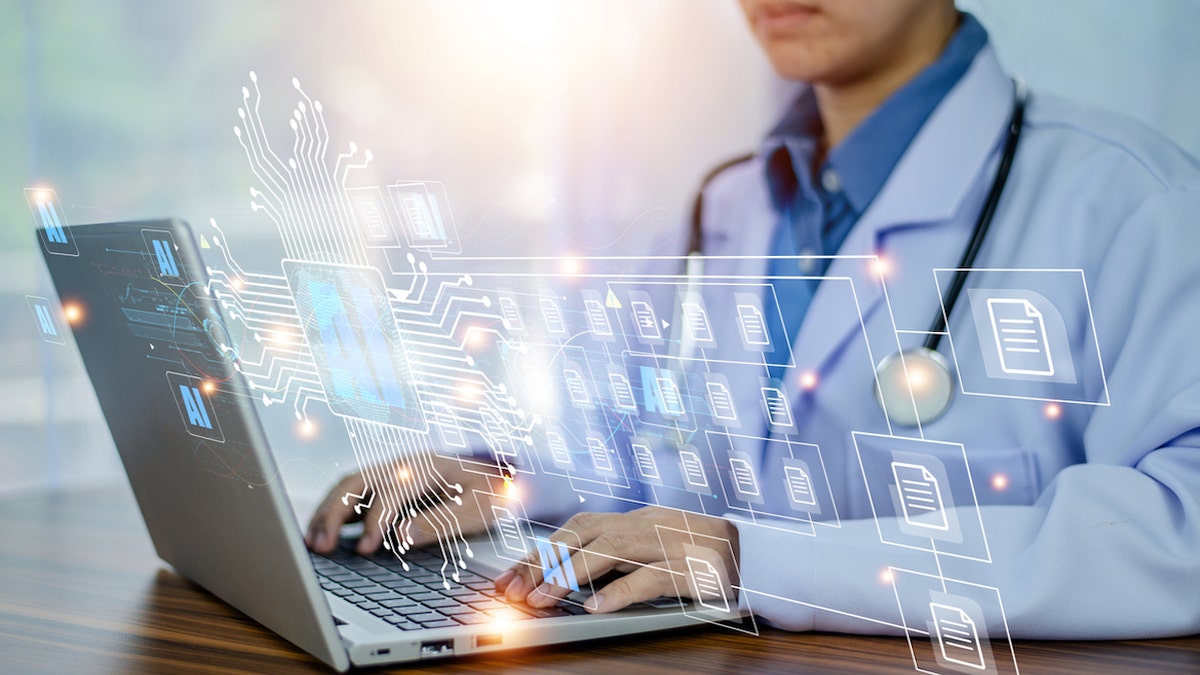
Artificial intelligence is expected to play a big role in the 2025 health landscape. (iStock)
4. “In 2025, I think we will recognize the power of drones and begin to use them to transform the way we deliver health care by making the home the center of care. Drone-facilitated care will impact primary care, urgent and emergency care, and even enable public health leaps by bringing care directly to patients in ways we never thought possible (or maybe thought were possible only for the Jetsons).”
David Levine, MD, MPH, MA
Clinical Director of Research and Development
Mass General Brigham
“I believe in 2025, we will see many more patients benefiting from genetic therapies.”
5. “Increased access to emerging technologies and personalized data, combined with information specifically tailored for the individual, will drive self-care in health and wellness in more patients, initially in preventative medicine, in the next year. This phenomenon will begin to impact chronic disease management and progressively more complex conditions and will accelerate devolution of care and responsibility for many conditions to the patient — who is often best placed to understand their own health.”
Calum A. MacRae, MD, PhD
Vice Chair for Scientific Innovation
Brigham and Women’s Hospital
For more Health articles, visit www.foxnews.com/health
6. “Treatments for rare genetic diseases are rapidly being translated to clinics. With close to 40 gene and cell therapies approved and hundreds expected to come down the pipeline, I believe that in 2025, we will see many more patients benefiting from genetic therapies.”
Susan A. Slaugenhaupt, PhD
Scientific Director, Mass General Research Institute
Massachusetts General Hospital

Health
6 Bad Breath Triggers and Natural Ways To Get Rid of Odors for Good

Sign Up
Create a free account to access exclusive content, play games, solve puzzles, test your pop-culture knowledge and receive special offers.
Already have an account? Login
Use left and right arrow keys to navigate between menu items.
Use escape to exit the menu.
Health
6 tips to ‘detox’ after excessive holiday eating and drinking

Between dinner parties, cookie exchanges and festive cocktails, most people report eating and drinking more than usual during the holidays, gaining on average 1 to 2 pounds of body weight.
Now that a new year has arrived — bringing with it a return to regular routines and the typical flurry of resolutions — many may be eager to look and feel healthier.
“If you are feeling bloated and sluggish after the holidays, it is most likely water retention from eating higher-sodium and higher-sugar foods, along with alcohol and less overall activity,” New Jersey-based registered dietitian Erin Palinski-Wade told Fox News Digital.
‘I’M A PSYCHOLOGIST — HERE’S HOW TO FINALLY BREAK YOUR BAD HABITS’
While it can be tempting to jump on a “detox” plan, the dietitian noted that the body naturally detoxifies itself through organs like the liver and kidneys.
Most people report eating and drinking more than usual during the holidays, gaining on average 1 to 2 pounds of body weight. (iStock)
“You do not need to follow a detox plan or take a special supplement to detox — however, you can adopt healthier habits post-holidays to support your body’s detox abilities while helping to flush out the water retention that makes you feel bloated and fatigued,” she said.
Tanya Freirich, a registered dietitian nutritionist in Charlotte, North Carolina, who practices as The Lupus Dietitian, agrees that the body does a good job of detoxing what it doesn’t need without any extra products — but acknowledges that holiday excess can take a toll.
‘YO-YO’ WEIGHT LOSS OCCURS BECAUSE OF THIS SURPRISING REASON
“Many people feel bloated from extra eating and more salt, sugar and alcohol,” she said to Fox News Digital. “If you feel that you are in need of a detox, I recommend a simplified diet instead of a detox diet.” (More on that below.)
6 tips for a reset
The experts shared with Fox News Digital some simple steps for getting back to a healthier state after a season of overindulgence.
1. Stay hydrated
Registered dietitian and food blogger Lauren Harris-Pincus, based in New York, recommends aiming for at least 64 to 96 ounces of water per day.
“This will help keep things moving, support your own detoxification processes, nourish your skin, help with fatigue and combat the dryness we experience from indoor forced heat in the winter,” she told Fox News Digital.
“You can adopt healthier habits post-holidays to support your body’s detox abilities.”
All unsweetened beverages count toward hydration — water, coffee, tea and sparkling water, as well as milk and yogurt, according to Harris-Pincus.
“Most fruits and veggies are hydrating as well,” she added.
2. Follow a ‘simplified diet’
Freirich recommends continuing to eat consistently throughout the day, focusing primarily on unprocessed foods, home-cooked meals, and “particularly nourishing” foods like vegetables, soups, whole grains, beans, nuts, seeds and fruits.

Experts recommend focusing on unprocessed foods, home-cooked meals, and “particularly nourishing” foods like vegetables, soups, whole grains, beans, nuts, seeds and fruits. (iStock)
She also recommends slowly increasing fiber to 25 to 35 grams per day. Examples of fiber-rich foods include unprocessed vegetables, whole grains, nuts, seeds, beans, lentils and chickpeas.
Harris-Pincus also recommends balancing meals with protein, fiber-rich carbohydrates and heart-healthy fats.
3. Prioritize sleep
Most experts recommend that healthy adults get at least seven hours of sleep nightly.
“Lack of quality sleep not only zaps your energy, but can also impact hunger and satiety, leading to poor food choices that will keep you feeling bloated and sluggish,” Palinski-Wade said.

Most experts recommend that healthy adults get at least seven hours of sleep nightly. (iStock)
She recommends going to bed at the same time each night, eliminating distractions such as TVs and cell phones, and aiming to have a quiet, dark sleep environment.
4. Increase probiotic-containing foods
Probiotics are microorganisms that help balance the “good” and “bad” bacteria in the gut microbiome, which promotes healthy digestion, according to experts.
“Probiotics can be found in yogurt, kombucha, kefir, miso soup, kimchi, sauerkraut and other fermented foods,” Freirich said.
5. Cut out or limit alcohol
Recent research has confirmed the negative health effects of alcohol, including a higher risk of many types of cancer.
“Reducing or skipping alcohol can do wonders for your overall health, energy and well-being in the new year,” Freirich said.

Recent research has confirmed the negative health effects of alcohol, including a higher risk of many types of cancer. (iStock)
Chris Tuell, clinical director of addiction services at the Lindner Center of HOPE in Mason, Ohio, also recommends abstaining.
“Give your liver a break by cutting back on alcohol and reducing caffeine intake,” he advised. “Replace with herbal teas or decaffeinated options.”
6. Boost physical activity
The Physical Activity Guidelines for Americans recommends that adults get 150 minutes of moderate-intensity physical activity per week.
“Engage in light exercise, such as walking, yoga or stretching to improve circulation and metabolism,” Tuell suggested. “Gradually re-introduce more intense workouts as your energy returns.”
IS EATING ONCE A DAY A GOOD IDEA? EXPERTS SHARE VARYING OPINIONS ON THE ‘OMAD DIET’
Simply adding more steps to your day or incorporating stretching into your routine will help to fight bloat and boost energy, according to Palinski-Wade.
Harris-Pincus agreed that the activity doesn’t have to be extreme — “even walking around the house brings mental and physical health benefits,” she noted.
Dangerous behaviors to avoid
Palinski-Wade warns about products that claim to offer a “quick fix,” such as losing a rapid amount of weight in a short period of time or promoting detox claims that are not backed by scientific evidence.
“Reducing or skipping alcohol can do wonders for your overall health, energy and well-being.”
“Some of these products could contain potentially harmful ingredients or laxatives, or may interact with other supplements and medications,” she cautioned.
It’s always best to discuss a supplement with your physician or dietitian to make sure it is from a reputable brand and is safe for your individual health needs, the dietitian added.
CLICK HERE TO SIGN UP FOR OUR HEALTH NEWSLETTER
“In order to feel your best and maintain that feeling, you need to incorporate realistic lifestyle habits you can stick with day after day,” Palinski-Wade said. “Consistency is key when it comes to achieving true health change.”

Probiotics are microorganisms that help balance the “good” and “bad” bacteria in the gut microbiome, which promotes healthy digestion, according to experts. (iStock)
Freirich agreed, warning against any extreme fasting, cleanses or detox products.
“Many of these cause extreme bowel movements, which can lead to a dramatic loss of electrolytes and fluids that can be extremely dangerous for the body,” she cautioned. “Fasting and cleanses can also cause dangerous changes to blood sugar.”
For more Health articles, visit www.foxnews.com/health
Instead, focusing on the six steps outlined above will help your digestive system move regularly, Freirich said, while also reducing any water retention and puffiness.
Health
Tirzepatide vs. Semaglutide: What's Better for Weight Loss? | Woman's World

Sign Up
Create a free account to access exclusive content, play games, solve puzzles, test your pop-culture knowledge and receive special offers.
Already have an account? Login
Use left and right arrow keys to navigate between menu items.
Use escape to exit the menu.
-
/cdn.vox-cdn.com/uploads/chorus_asset/file/25672934/Metaphor_Key_Art_Horizontal.png)
/cdn.vox-cdn.com/uploads/chorus_asset/file/25672934/Metaphor_Key_Art_Horizontal.png) Technology1 week ago
Technology1 week agoThere’s a reason Metaphor: ReFantanzio’s battle music sounds as cool as it does
-

 Business1 week ago
Business1 week agoOn a quest for global domination, Chinese EV makers are upending Thailand's auto industry
-

 Health5 days ago
Health5 days agoNew Year life lessons from country star: 'Never forget where you came from'
-
/cdn.vox-cdn.com/uploads/chorus_asset/file/24982514/Quest_3_dock.jpg)
/cdn.vox-cdn.com/uploads/chorus_asset/file/24982514/Quest_3_dock.jpg) Technology5 days ago
Technology5 days agoMeta’s ‘software update issue’ has been breaking Quest headsets for weeks
-

 World1 week ago
World1 week agoPassenger plane crashes in Kazakhstan: Emergencies ministry
-

 Politics1 week ago
Politics1 week agoIt's official: Biden signs new law, designates bald eagle as 'national bird'
-

 Business2 days ago
Business2 days agoThese are the top 7 issues facing the struggling restaurant industry in 2025
-

 Politics1 week ago
Politics1 week ago'Politics is bad for business.' Why Disney's Bob Iger is trying to avoid hot buttons















